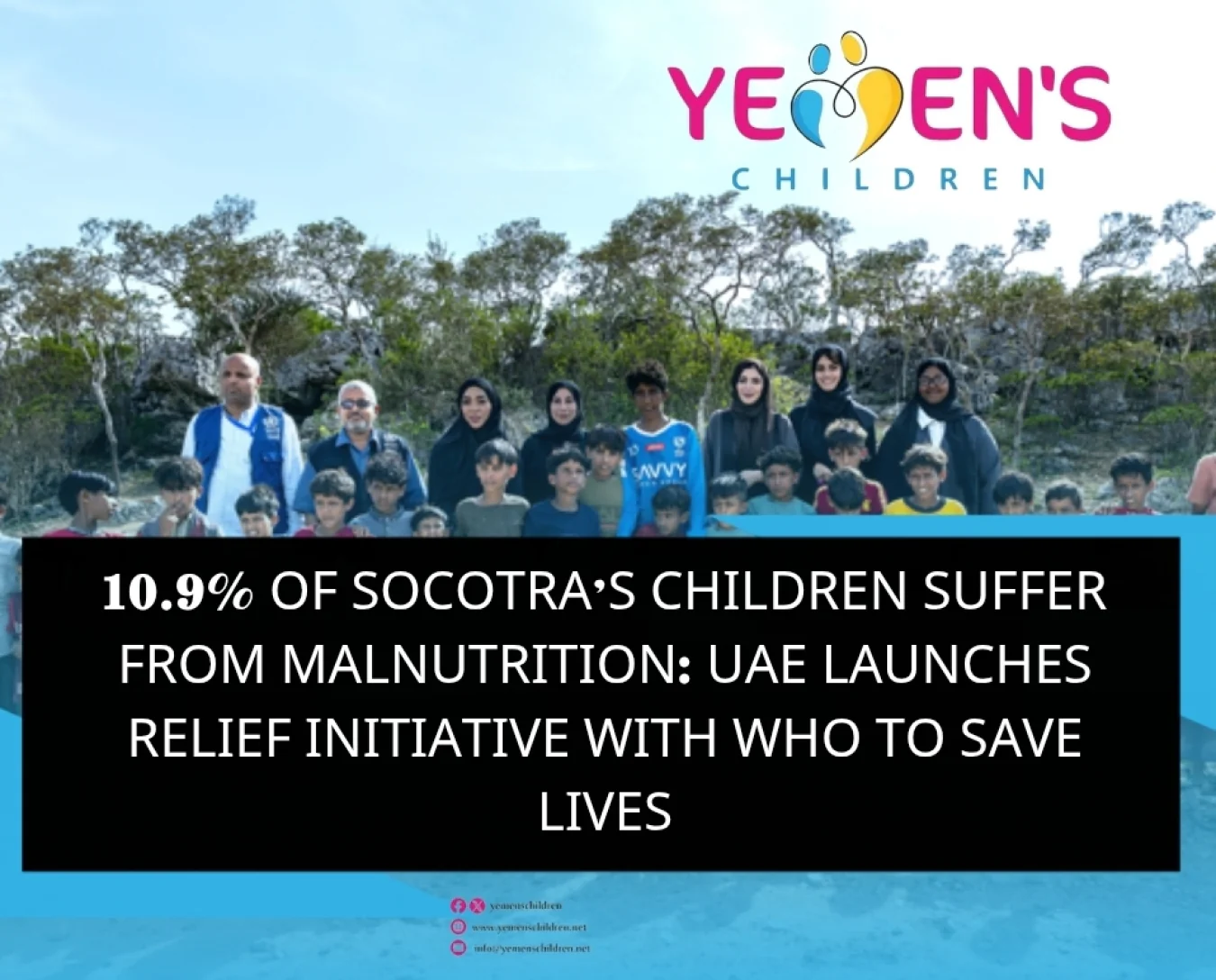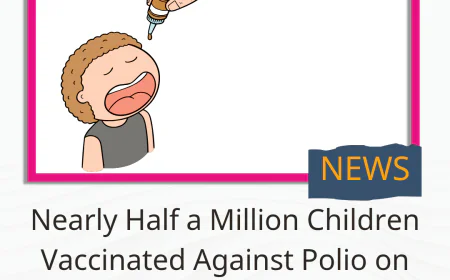10.9% of Socotra’s Children Suffer from Malnutrition: UAE Launches Relief Initiative with WHO to Save Lives

In a swift humanitarian response to the pressing health crisis in Yemen’s Socotra Island, the Khalifa bin Zayed Al Nahyan Foundation for Humanitarian Works has launched a new initiative, in partnership with the World Health Organization (WHO), to combat malnutrition among children and women. The move comes amid alarming international reports indicating that 10.9% of the island’s children suffer from acute malnutrition, with 1.6% facing severe acute malnutrition.
The two-year initiative aims to reduce mortality rates among children and women caused by malnutrition through a comprehensive plan. This includes conducting an updated nutritional survey, enhancing maternal and child health services, strengthening dietary and health systems, and developing emergency health response mechanisms.
According to international standards, these malnutrition rates place the island in the “critical” category, demanding immediate humanitarian action—particularly as children under the age of five are the most affected, in a context marked by fragile healthcare infrastructure and a lack of epidemic preparedness.
Mohamed Haji Al Khouri, Director of the Khalifa Foundation, emphasized that the initiative continues the UAE’s ongoing humanitarian commitment to support the Yemeni people. It aims to strengthen the health infrastructure, train medical personnel, and provide essential medications, all in close coordination with the WHO.
Dr. Frema Kulibaly-Zerbo, WHO’s Acting Representative in Yemen, stated that the project seeks to establish a sustainable healthcare system in Socotra. It reflects the organization’s commitment—alongside its partners—to addressing urgent health needs of mothers and children while laying the foundations for long-term health security.
The initiative is also expected to enhance nutrition and health monitoring systems, raise community awareness, and deliver targeted nutritional and medical interventions based on accurate field data—representing a significant step forward in protecting vulnerable populations from the devastating impacts of malnutrition.











